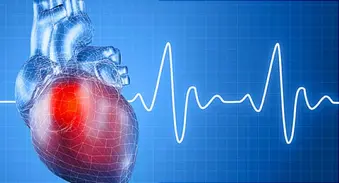Do You Know Your Atrial Fibrillation (AFib) Facts?


Question 1/11
Electricity in your heart tells it when to beat.
- True
- False
Question 2/11
Does stress cause AFib?
- Yes
- No
Question 3/11
At rest, how many times does a normal heart beat in a minute?
- 60 to 100
- 110 to 150
- 160 to 200
Question 4/11
You'll know if you have AFib.
- True
- False
Question 5/11
Who's most likely to get AFib?
- People in their 30s
- People in their 40s
- People older than 60
Question 6/11
AFib raises your chances of:
- A stroke
- Diabetes
- Blindness
Question 7/11
The best test to see if you have AFib is:
- Stress test
- MRI
- EKG
Question 8/11
What effect does binge drinking have on your risk of AFib?
- Raises it
- Lowers it
- None
Question 9/11
A jolt of electricity to the heart can help with AFib.
- True
- False
Question 10/11
If you have AFib, will you need a pacemaker?
- Yes
- No
Question 11/11
Treating what condition may make your AFib may go away?
- Sleep apnea
- Shingles
- Synesthesia